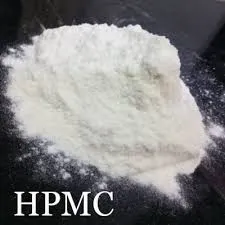
Nov . 22, 2024 01:05 Back to list
mortar bonding agent
The Role of Mortar Bonding Agents in Construction
In the field of construction, ensuring the durability and strength of structures is paramount. One essential component that often plays a crucial role in enhancing the integrity of masonry work is the mortar bonding agent. This specialized compound is used to improve the adhesion of mortar to various surfaces, making it an indispensable tool for builders and contractors.
Mortar bonding agents are typically applied to substrates such as concrete, brick, and stone before the application of mortar. The primary function of these agents is to create a stronger bond between the mortar and the substrate, which helps mitigate issues such as cracking, spalling, and water penetration. By improving the bond strength, these agents ensure that the mortar adheres more effectively to the surface, enabling it to withstand the stresses of weight, movement, and environmental factors.
One of the most significant advantages of using a mortar bonding agent is the improved workability it provides. Many bonding agents are formulated to enhance the consistency of the mortar mix, making it easier to apply and spread. This enhanced workability can significantly reduce labor time and increase overall efficiency on the job site. Moreover, a well-bonded mortar layer can effectively resist freeze-thaw cycles, which is particularly important in regions subject to harsh weather conditions.
mortar bonding agent

There are various types of bonding agents available on the market, including latex-based, acrylic-modified, and epoxies. Each type has its unique properties and is suitable for different applications. For instance, latex-based bonding agents are often favored for interior projects due to their excellent flexibility and adhesion. In contrast, epoxy bonding agents are typically used in situations that require high chemical resistance and durability, making them ideal for industrial applications.
Selecting the right type of mortar bonding agent depends on several factors, including the environmental conditions, the materials being used, and the specific requirements of the project. It’s essential for contractors to carefully assess these variables to ensure optimal performance. For example, using a bonding agent that is not suitable for exterior conditions may lead to premature failure of the mortar joints, resulting in costly repairs and potential safety hazards.
In addition to enhancing the bond between mortar and substrates, bonding agents can also contribute to the aesthetic appeal of masonry work. They can be formulated to match the color and texture of the surrounding materials, creating a seamless and consistent appearance. This is especially important for architectural masonry projects where aesthetics are as crucial as structural integrity.
In conclusion, mortar bonding agents are vital components in the construction industry, significantly improving the strength, durability, and appearance of masonry work. By providing a superior bond between mortar and substrates, they help ensure that structures can withstand the test of time and the forces of nature. As technology continues to advance, we can expect even more innovative bonding solutions that will further enhance construction practices and lead to safer, more reliable buildings. Thus, understanding and utilizing mortar bonding agents effectively is essential for any successful construction project.
-
Versatile Hpmc Uses in Different Industries
NewsJun.19,2025
-
Redispersible Powder's Role in Enhancing Durability of Construction Products
NewsJun.19,2025
-
Hydroxyethyl Cellulose Applications Driving Green Industrial Processes
NewsJun.19,2025
-
Exploring Different Redispersible Polymer Powder
NewsJun.19,2025
-
Choosing the Right Mortar Bonding Agent
NewsJun.19,2025
-
Applications and Significance of China Hpmc in Modern Industries
NewsJun.19,2025







